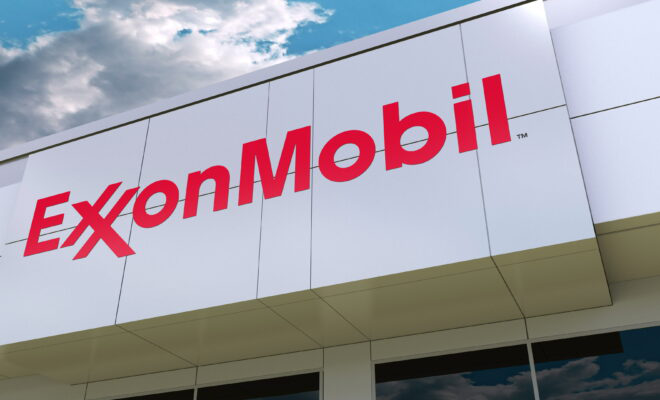KEY POINTS
- ExxonMobil considering sale of UK and Belgian chemical plants that could fetch up to $1 billion.
- European chemicals sector squeezed by U.S. tariffs, high energy costs, and cheaper Chinese imports.
- Exxon joins peers like LyondellBasell and Sabic in trimming European exposure.
In light of the continent’s industry’s struggles to recover from a brutal energy crisis, new competition from China, and the effects of U.S. trade tariffs, U.S Major Oil and Gas firm ExxonMobil Corp. is considering selling its chemical manufacturing assets in Europe.
The Financial Times quoted people familiar with the situation as saying that the U.S. oil major has held initial discussions with advisors in recent weeks regarding possibly selling off facilities in the UK and Belgium. Although no decision has been made and Exxon may still choose to keep the sites, a deal could raise up to $1 billion.
The business told the newspaper that it doesn’t “comment on rumors or speculation,” so it declined to comment.
Several production facilities in Belgium and an ethylene plant in the Scottish town of Fife are part of Exxon’s European portfolio. According to sources, if a buyer cannot be found, the company has also considered completely closing the plants.
Tariffs, Energy Costs and Asian Imports Pressure Europe’s Chemical Industry
The discussions draw attention to the growing strain on Europe’s once-dominant chemicals sector, which is still suffering from the energy crisis of 2022.
Profitability had already been weakened by a spike in natural gas prices, which was made worse by Russia’s war in Ukraine. U.S. tariffs are currently causing orders to be delayed, distorting international trade flows, and making it more difficult for European manufacturers to compete with lower-priced imports from Asia.
Retrenchments are also being made by other multinational corporations. While Saudi-owned Sabic has decreased its exposure in Europe, LyondellBasell sold off some olefin and polyolefin assets earlier this year. Without assistance, analysts caution, Europe runs the risk of losing its industrial base over time as more production moves to less expensive areas.
ExxonMobil Corp. is exploring the sale of its chemical manufacturing assets in Europe, as the continent’s industry struggles to recover from a bruising energy crisis while facing fresh competition from China and the fallout of U.S. trade tariffs.
The U.S. oil major has held preliminary talks with advisers in recent weeks about potentially divesting facilities in the UK and Belgium, according to people familiar with the matter cited by the Financial Times. A deal could raise as much as $1 billion, though no decision has been finalized and Exxon may yet decide to hold onto the sites. The company declined to comment, telling the newspaper it does not “comment on rumours or speculation.”
Exxon’s portfolio in Europe includes an ethylene plant in the Scottish town of Fife and several production sites in Belgium. Sources said the company has also weighed shutting the plants outright if a buyer cannot be found.
Tariffs, Energy Costs and Asian Imports Pressure Europe’s Chemical Industry
The deliberations highlight mounting pressure on Europe’s once-mighty chemicals industry, which is still reeling from the 2022 energy crisis. A surge in natural gas prices, exacerbated by Russia’s war in Ukraine, had already weakened profitability. Now, U.S. tariffs are distorting global trade flows, delaying orders, and making it harder for European producers to compete with cheaper imports from Asia.
Other multinational players are also retrenching. LyondellBasell earlier this year sold off certain olefin and polyolefin assets, while Saudi-owned Sabic has reduced its exposure in Europe. Analysts warn that without relief, Europe risks long-term erosion of its industrial base as more production shifts to lower-cost regions.
Exxon, meanwhile, has been restructuring its downstream and chemicals operations globally. In May, the company entered exclusive talks with the French subsidiary of Canada’s North Atlantic Refining to sell its majority stake in Esso France.
For Brussels and London, Exxon’s potential withdrawal underscores the vulnerability of the continent’s industrial backbone just as policymakers attempt to spur a green transition and protect domestic supply chains from geopolitical shocks.



